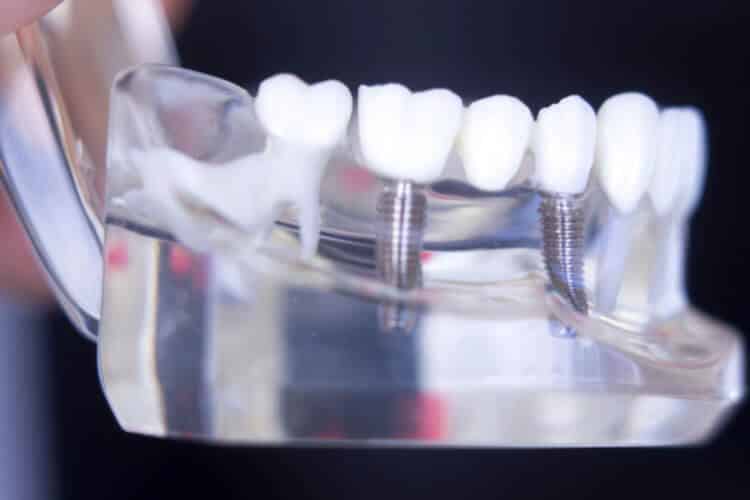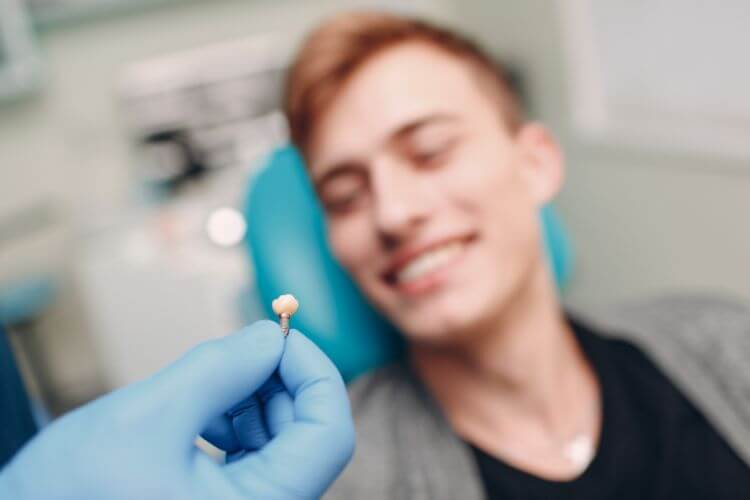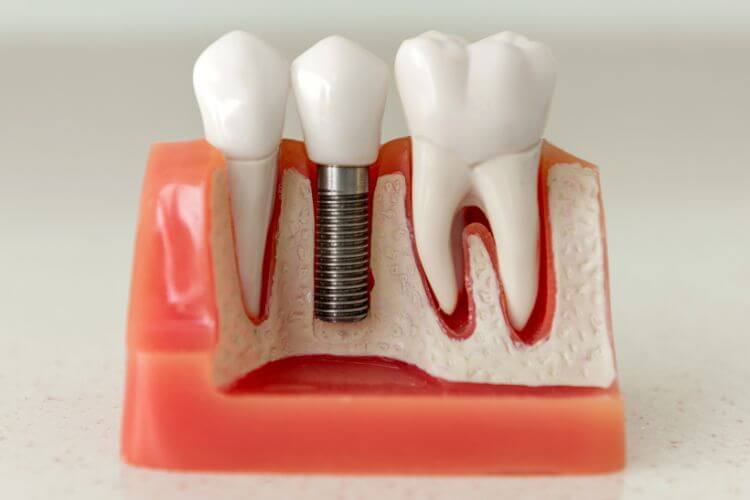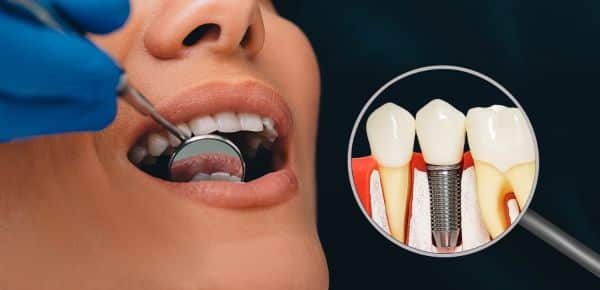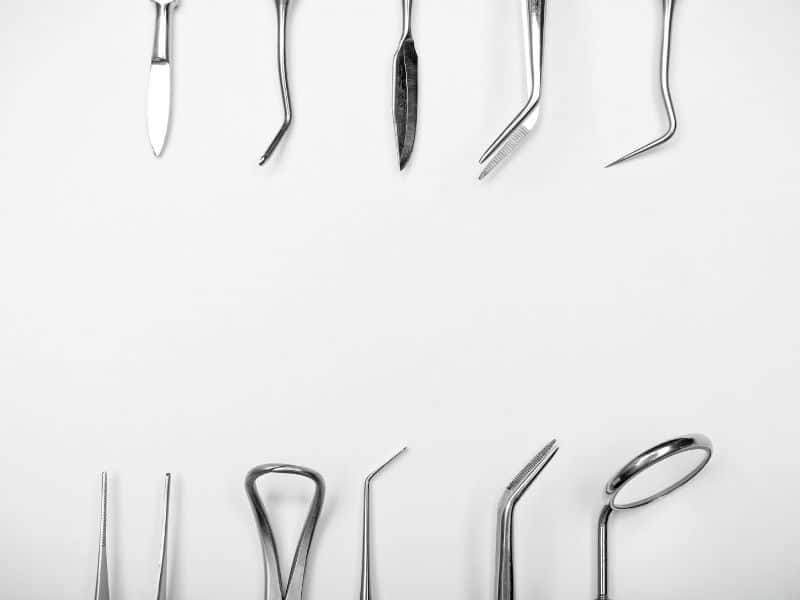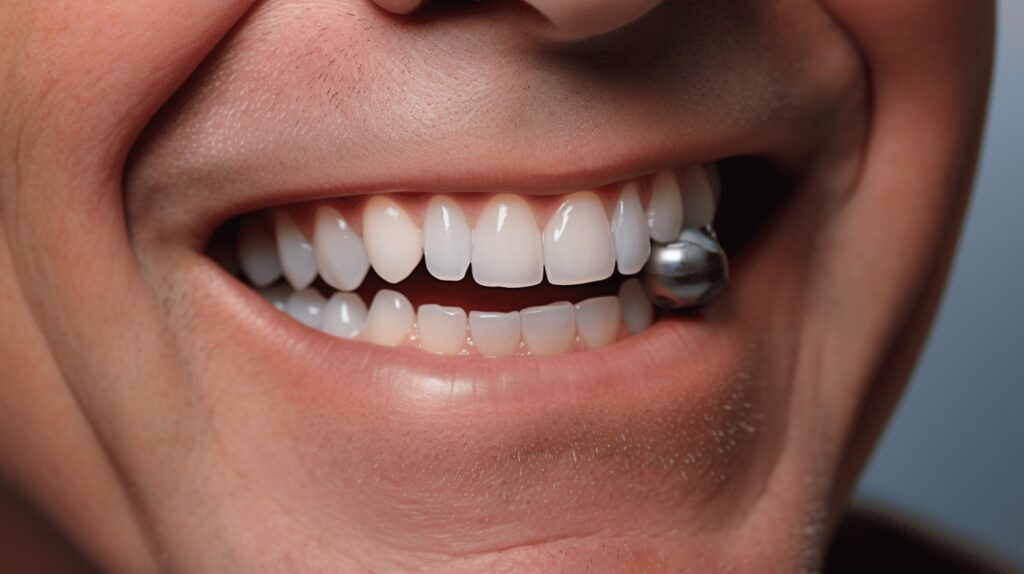Welcome to your all-in-one guide about the recovery process after dental implant surgery! 😁 Dental implants can be the perfect solution for those with missing teeth looking to restore their smile. However, it’s completely natural to feel a bit anxious about the procedure and what comes after. That’s where we come in!
Our aim with this resourceful article is to relieve your fears by giving you a comprehensive understanding of what to expect before, during, and after the day of your surgery. Our in-depth guide covers everything from preparation before surgery including consultation and evaluation, medical history assessment, and the actual process on the day of surgery. And rest assured, we haven’t forgotten about aftercare! With detailed explanations about immediate and long-term aftercare methods, potential complications, and all-important follow-up appointments—you’ll feel completely prepared for your dental implant journey.
So sit back, relax, and let us guide you through your recovery journey, making your transition to a new smile an easy and comfortable one.
Let’s dive in, shall we? 🏊♀️
(Note: Remember, every patient is unique, and your recovery might vary slightly from what we discuss here. It’s essential to follow the specific instructions given by your dental healthcare provider.)
Table of Contents
Preparation before Surgery
The prospect of going under the scalpel, be it for a minor or a major procedure, can be quite daunting. However, adequate preparation before surgery can be one of the most effective ways to ensure a smooth procedure and a speedy recovery. We’re here today to let you in on a few crucial steps traditionally involved in pre-surgery preparation. These steps are a blend of both physical and emotional strategies, which encourage a calm mind and a well-prepared body, eventually contributing to a successful surgical outcome.
Consultation and Evaluation
One of the initial and most vital steps in preparing for surgery is, of course, consultation and evaluation. This goes beyond explaining the procedure or the specifics of the disease. It involves forging a strong doctor-patient relationship, which boosts confidence and ensures that the patient is comfortable asking any questions or voicing concerns.
Doctor consultations are also the best opportunity for patients to get a clear understanding of:
- What the surgery involves
- Why it’s being recommended
- Potential benefits, risks, and complications
- Alternative treatment options, if any
- And of course, the estimated cost
During the evaluation, the surgeon assesses the patient’s condition and decides whether surgery is indeed the best course of action. This is based on factors like:
- The severity of the patient’s condition
- The patient’s age, overall health, and lifestyle
- How likely the surgery is to improve the patient’s health or quality of life
Medical History Assessment
Another crucial aspect of pre-surgery preparation is the assessment of the patient’s medical history. This in-depth review enables the surgical team to identify any potential risk factors which might influence the success of the surgery. Here’s what this assessment broadly covers:
- Chronic illnesses, like diabetes or heart disease
- Previous surgical procedures
- Allergies to medications or anesthesia
- Family history of anesthesia complications
- Current medications, supplements, or recreational drug use
This comprehensive medical history assessment aids the surgery team in customizing the procedure to best suit the patient. Each patient’s surgery and recovery plan is unique, therefore, being completely honest and upfront about your health history during this assessment is, thus, paramount.
So, there you have it – proper surgery preparation is straightforward and provides tremendous peace of mind heading into the procedure. Effective communication with your healthcare professionals, active participation in consultations, evaluations, and honest reporting of your medical history are the keys to a stress-free surgical experience. Remember, we’re all in this together. Your healthcare team is dedicated to providing you the best care possible, and your preparation and cooperation go a long way in achieving that. 🤝
Day of Surgery
Have you ever heard that saying, “preparation is half the battle?” We believe it applies perfectly to the day of your impending surgery. Having a clear understanding of what to expect, step by step, can alleviate any unease you may harbor. With that in mind, let’s explore what your day might be like, especially focusing on two main aspects: anesthesia administration and incision and implant placement.
Anesthesia Administration
The first step, understandably, is anesthesia administration. This process ensures you don’t feel any discomfort during the procedure. But what types of anesthesia might be employed? Let’s break it down:
- Local anesthesia – This type of anesthesia numbs a small area of your body where the surgeon will be working. It’s akin to what you’d receive during minor dental work.
- Regional anesthesia – This option numbs a larger portion of your body while you stay awake. The classic example is an epidural.
- General anesthesia – This is the big one. It causes you to fall asleep, and you won’t remember the surgery afterward.
The choice of anesthesia depends on a medley of factors, such as the type of surgery, your overall health, and, to some extent, your personal preference.
“Remember, no question is a silly question. Make sure to communicate with your surgeon or anesthesiologist if you have any concerns.”
Incision and Implant Placement
Once the anesthesia takes effect, the actual surgical procedure kicks off. Let’s take a moment to understand what’s likely to occur with ‘incision and implant placement.’ It may sound daunting at first, but the following steps make it easy to understand:
- Incision: Your surgeon makes an incision (or several smaller ones) in the most fitting area based on your procedure type.
- Access: Next, they maneuver to reach the area requiring the implant.
- Implant Placement: The surgeon places the implant carefully, ensuring correct alignment for functionality.
- Closure: Lastly, the surgical area is closed using stitches, staples, surgical glue, or sometimes a combination.
The process may vary based on the exact type of surgery you’re undergoing. However, having a general context can take the ‘unknown’ scare factor out of the equation.
We hope this guide empowers you with knowledge and helps you feel prepared as you head in for your surgical procedure. Remember, communication with your medical team is crucial. Don’t hesitate to ask questions, share concerns, or even ask for clarifications. It’s your day, and you have a right to understand what’s happening at every step. 👍
Immediate Aftercare
There’s a vast sense of relief after successful surgery – the nerve-wracking wait is over! But at this juncture, the immediate post-operative period, known as ‘immediate aftercare,’ begins. Naturally, this phase is immensely critical as it can significantly influence your recovery. Various elements factor into immediate aftercare—everything from gauze placement to pain management, and applications of ice packs.
Gauze Placement
The first step we take in immediate aftercare? Gauze placement.
Gauze serves two purposes:
- Controlling bleeding
- Protecting the surgical site from infection
We ensure the gauze is placed securely and covers the surgical area adequate enough to do its job. The replacement timings for gauze vary and depend mainly on the surgery and the rate at which you bleed. Here is where patience and careful attention matter. 🕓
Pain Management
The second critical part of immediate aftercare? Pain management.
Expect some discomfort—it’s a part of the healing process. However, unbearable pain isn’t, and we take every measure to ensure your comfort. Mild over-the-counter painkillers are often enough to manage this discomfort.
We plan your pain management regime based on your:
- Personal tolerance levels
- Procedure undergone
- Past medical history
Our goal is simple: minimize your pain without compromising your safety. 💪
Ice Pack Application
Finally, let’s discuss ice pack application—truly a ‘cool’ aspect of immediate aftercare. It helps:
- Reduce swelling
- Numb the area, reducing pain
We guide you through the process, instructing you on how often to apply the ice pack and for how long each application should last. Generally, applying an ice pack for 20 minutes at a time, immediately following surgery, can provide substantial relief.
In proper immediate aftercare, every step is interlinked and equally essential. We’re there for you every step of the way, taking your comfort and safety seriously. We want your healing process to be as smooth as it can be, initiating it right at the end of the surgery table. We offer this because we believe you deserve nothing but the best. 💗
While immediate aftercare sets the stage for your recovery, remember that it’s just the beginning. Comprehensive care continues even after you leave our facility, and involves follow-up appointments, a carefully planned diet, and gentle physical activity.
Remember, your journey to recovery begins with the first step—an effective immediate aftercare.
Long-term Aftercare
Navigating post-surgery recovery can create a lot of questions. As a provider of dental services, we feel it’s our responsibility to shed light on these often overlooked aspects of oral healthcare. We’re dedicated to ensuring your full understanding of long-term aftercare following dental procedures because we strongly believe that knowledge is a powerful tool in maintaining long-term oral health and promoting a swift recovery.
Medication and Antibiotics
After undergoing a dental procedure, it’s crucial to stick to the prescribed medication and antibiotics regimen strictly. These medications are designed to minimize discomfort, stave off infection, and help in promoting faster wound healing. Here are several points we recommend:
- Adhere to the physician’s instructions regarding medication dosage frequency.
- Do not discontinue antibiotics prematurely, even if you are feeling better.
- Call your dentist immediately if you experience severe side effects.
“Medication can make all the difference in a fast and smooth recovery. It’s crucial not to underestimate its importance,” our resident dentists constantly remind us.
Oral Hygiene
Proper post-surgery oral hygiene plays a key role in long-term aftercare. Given the fragility of the oral cavity following dental procedures, a delicate and yet effective oral care routine is paramount. Consider the following steps:
- Begin brushing lightly, avoiding the surgical area for the first couple of days.
- Rinse regularly with lukewarm saline water.
- Stay away from mouthwashes containing alcohol as they might irritate the surgery site.
Remember, the oral cavity is a gateway to the rest of the body, and an unclean mouth can lead to complications that can impact your overall health.
Dietary Restrictions
It’s also essential to maintain a suitable diet that aids in recovery yet doesn’t hinder the healing process. As part of our Long-term Aftercare program, we provide personalized dietary guidance tailored to individual needs and dietary restrictions for our patients. A few recommendations include:
- Stick to a liquid or soft food diet immediately after surgery.
- Avoid crunchy or hard foods that might harm the surgical site.
- Stay hydrated. Drink a lot of water but avoid hot drinks.
In conclusion, we believe that thorough long-term aftercare is just as crucial as the dental procedure itself. With a combination of proper medication, meticulous oral hygiene, and a controlled diet, you should be on your way to a speedy recovery and overall improved oral health.
Potential Complications
The thought of undergoing any procedure can often be intimidating, what with the accompanying nervousness and uncertainty swirling in your mind. While we trust the process and the professionals to ensure smooth sailing, we also understand the importance of being well-informed about potential complications. Knowing what to prepare for, and how to proactively avoid, or handle such scenarios, can be truly empowering. And that’s exactly what we’re here for. Let us delve into the most common potential complications that you may encounter: Infection, Swelling, and Bruising.
Infection
The risk of infection is always present, whether the procedure is minor or major. Infections, if not detected and managed in time, can lead to severe health complications. Listed below are some signs of infection:
- Increased pain, redness, and swelling
- A persistent fever
- Pus or weeping from the surgical wound
- Unpleasant odor from the wound
Your healthcare provider will equip you with information to prevent infections, including maintaining a hygienic surgical site and perhaps even prescribing antibiotics as a preventive measure. If you notice any signs of an infection, no matter how subtle, it is crucial to immediately notify your healthcare professional.
Swelling
Post surgical swelling is the body’s reaction to injury and is part of the healing process. However, excessive swelling could indicate issues and should not be ignored. Steps to manage swelling include:
- Keeping the inflamed part elevated
- Using an ice pack on the swollen area
- Wearing compression garments if advised by your healthcare professional
👉 Bear in mind, not every swelling is ordinary. If your swelling does not decrease after a few days or is accompanied by severe pain, it’s time to consult your healthcare provider.
Bruising
Bruising, the discoloration caused by blood trapped under the skin, is another common after-effect of surgical procedures. Gentle massage (if permitted by your healthcare provider), applying a warm compress, and over-the-counter creams might help to resolve bruising.
While these potential complications can be distressing, remember that they are not at all rare. Keep your healthcare provider in the loop about your recovery progress and do not hesitate to reach out if something feels off. Being prepared for these potential complications will make your recovery process less daunting.
Your wellbeing and peace of mind are our utmost priority. By arming yourself with knowledge and a vigilant approach, you can navigate your healing journey with confidence and tranquility. And remember, it’s completely okay to ask questions – you’re not alone in this.
Follow-up Appointments
Sometimes, merely visiting a healthcare professional is not enough to ensure your well-being. In many cases, follow-up appointments can provide crucial insights into your progress and help fine-tune treatment plans. No two individuals are the same, so personalizing your care with regular check-ins is key. Let’s dive into the purpose and importance of follow-up appointments and why they are a cornerstone to achieving optimal health.
Purpose of Follow-up Appointments
It’s not always about diagnosing and treating; sometimes, it’s about maintaining and optimizing. Follow-up appointments serve multiple purposes.
- Monitoring Progress: Follow-up appointments allow your healthcare professional to assess how well you’re responding to treatment.
- Adjusting Treatments: They also provide an opportunity to adjust treatments, if necessary, based on your response or any side effects you’ve experienced.
- Answering Questions: Follow-up appointments give you an excellent opportunity to bring up any new questions or concerns you might have, ensuring consistent and open communication.
“Maintaining good health requires consistent care. Follow-up appointments can play a key role in making it possible.” – Dr. Anonymous.
Why Follow-up Appointments are Crucial
Consistent Health Monitoring: Chronic conditions like diabetes, heart disease, or asthma require consistent monitoring to manage effectively. With regular follow-up appointments, you’re not just treating a disease; instead, you’re managing your overall health – proactively!
Better Relationship with Healthcare Professionals: By keeping regular appointments, you are building a partnership with your healthcare providers. This ensures they have a comprehensive understanding of your health history, lifestyle, and specific concerns.
Boosts Recovery Process: The healing process begins when treatment commences, but without regular follow-ups, it’s like starting a marathon and not crossing the finish line.
Anticipate Health Issues: Regular check-ins can help detect potential health issues earlier when they are usually easier and less expensive to treat.
Thus, follow-up appointments are not a mere formality but an indispensable part of your overall health regimen. They put the ‘care’ in healthcare. So remember, when your healthcare practitioner schedules your next follow-up appointment, it’s not just another date on your calendar! 👨⚕️👩⚕️📆
Stay proactive, stay healthy!
Conclusion
At Wilshire Smile Studio, we pride ourselves on offering comprehensive dental care, and that includes guiding you through every step of significant procedures like dental implants. Our aim is to ensure you’re never left in the dark about your oral health. From the undue stress prior to surgery to the immediate aftercare and long-term care strategies, we’ll be with you to provide the necessary support and advice.
Undergoing dental implant surgery is no small feat, but with our dedicated team, rest assured that you’re in good hands. Knowing what the recovery process entails can be a boon in preparing yourself not just physically, but also mentally, for the journey ahead.
While people might react differently to dental implant surgery and have varied healing rates, it’s crucial to remember that a clean and healthy oral regimen is paramount for a smooth recovery. Alerting your dentist at the earliest sign of possible complications can nip any potential issues in the bud before they escalate.
So, remember, we’re only a call away when you need the best dental care. We eagerly look forward to helping you flash that perfect, healthy smile once again!
Frequently Asked Questions
-
- How long does the recovery process take after dental implant surgery?The recovery process after dental implant surgery can vary depending on individual factors. In general, it takes about 7-10 days for initial healing, and complete recovery can take several weeks to a few months.
-
- What should I expect during the recovery period after dental implant surgery?During the recovery period, you may experience swelling, discomfort, and minor bleeding. It is normal to have difficulties when eating or talking initially. Your dentist may prescribe pain medication and suggest a soft diet to promote healing.
-
- Are there any restrictions or precautions to follow during the recovery process?Yes, it is important to follow the aftercare instructions provided by your dentist or oral surgeon. These may include avoiding hard or sticky foods, refraining from smoking, practicing good oral hygiene, and attending follow-up appointments regularly.
-
- How can I manage pain or discomfort during the recovery process?Your dentist may prescribe pain medication to manage any discomfort during the recovery process. Applying an ice pack to the affected area can also help reduce swelling. It is essential to follow the prescribed medication and dosages.
- When can I resume my normal activities after dental implant surgery?It is advisable to take it easy for the first few days after surgery and avoid strenuous activities. You can gradually resume your normal activities as directed by your dentist or oral surgeon, typically within a week or so.



